Best squirrel-proof bird feeders 2025
With the best squirrel-proof bird feeders, those pesky rodents will be prevented from stealing your feathered friends' seeds
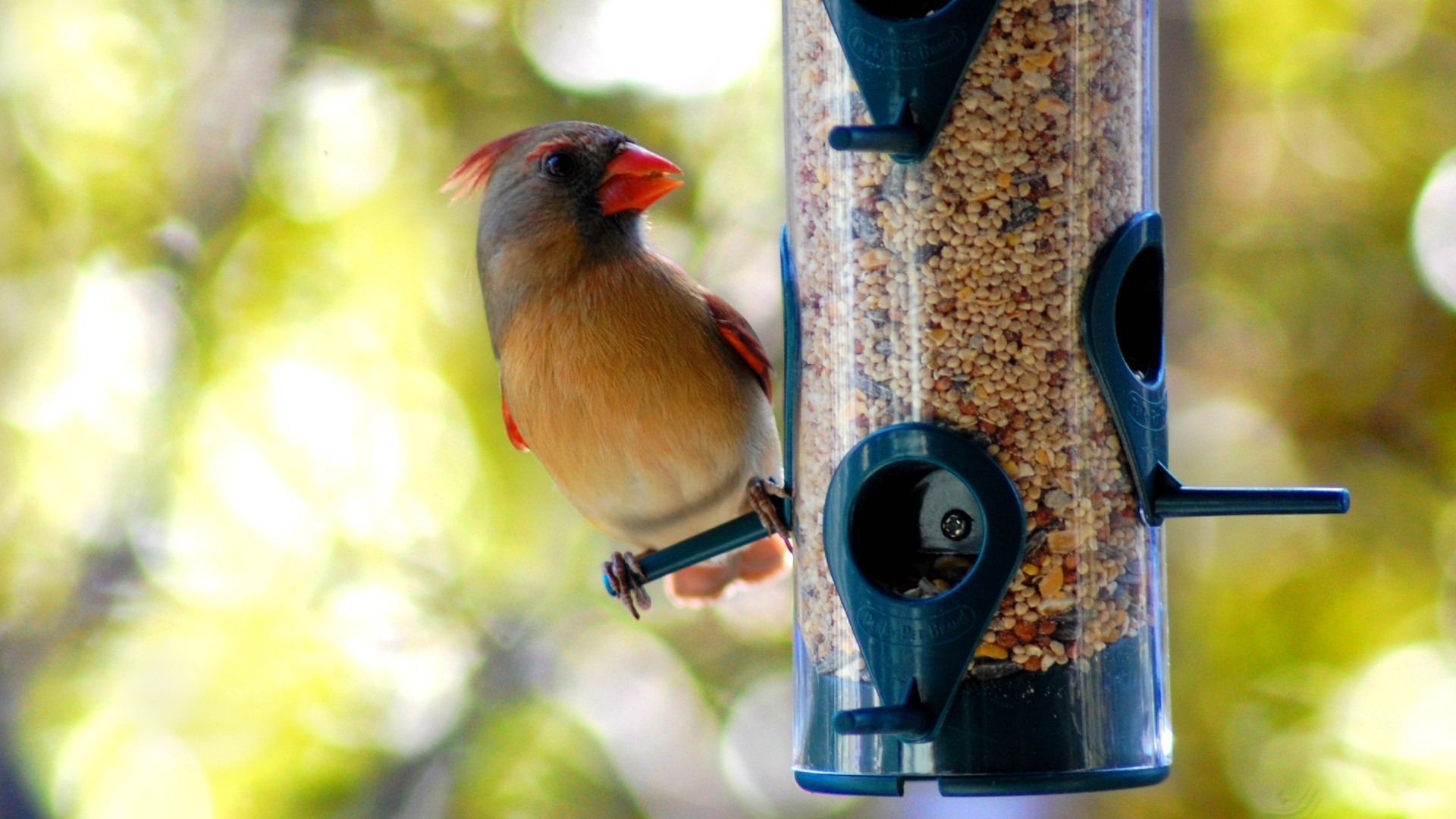
If you’re looking for the best squirrel-proof bird feeders, then it’s likely you’ve identified a particular problem – namely mischievous squirrels climbing up to your bird feeder and stealing the selection of best bird food you’ve put out for your feathered friends. It’s a common problem and one that will adversely affect your efforts. Not only will you need to keep topping up the feeder with the best bird food, repeated visits by squirrels is likely to prove off putting to birds who fancy paying a visit.
Understanding how to keep squirrels out of your bird feeder is therefore important and, thankfully, there are so many dedicated squirrel-proof feeders on the market that are just as flexible as any of the best bird feeders.
“Many bird feeders are specially designed to prevent squirrels from being able to access the food,” explains expert vet Dr Rebecca MacMillan. One thing’s for sure, you’re going to be rather spoiled for choice, which means your efforts to attract birds to your garden will not be wasted.
You will find lots of squirrel-proof feeders that are tough and study. You’ll also come across a squirrel-proof feeder of the required size. There are some which can be mounted on poles and some that can be hung. So let’s take a look at the best squirrel-proof bird feeders around today and help eliminate one of every bird-lover's worst nightmares.
Best squirrel-proof bird feeders 2025
Why you can trust PetsRadar
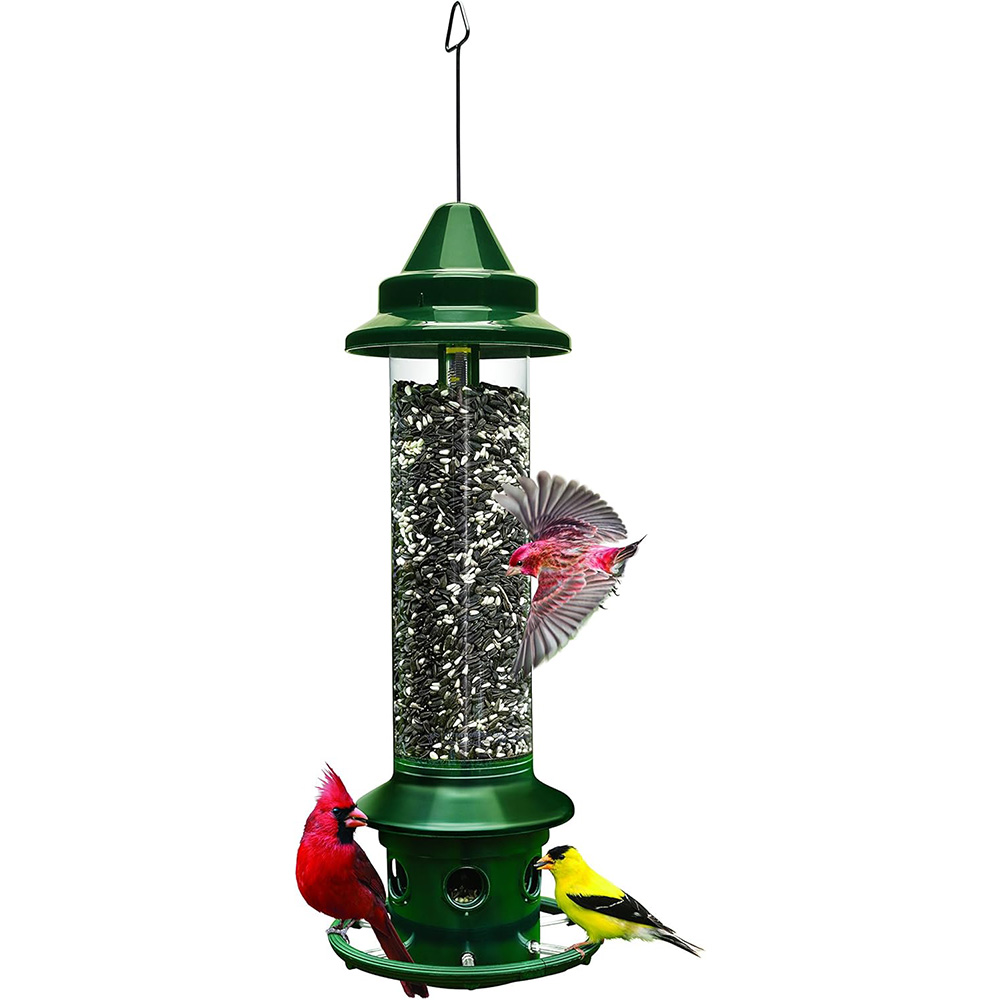
Best overall bird feeder
With a name like that (and a price which, it must be said, is on the more expensive side for a feeder), you would expect the problem of squirrels munching on seed left out for the birds to be totally resolved. But is it? Well, yes, which is why it also tops our guide to the best bird feeders. The good news is that the Squirrel Buster Plus is highly effective in deterring those pesky rodents and not just because it boasts chew-proof materials made of a special, tooth-proof patented RoxResin compound.
When an adult squirrel climbs on to the feeder, its weight will force a shroud to close down over the feeding ports, preventing access to the tasty morsels within. And because the tube isn’t made of mesh, there are no other ways for the squirrels to gain access. Problem solved, we’d say, and it also helps enormously that it’s a nice looking feeder with space for birds to perch.
Reasons to buy: It’s a strong device with large holes for feeding that close shut when heavy squirrels attempt to eat.
Reasons to avoid: You will need to wash the feeder by hand and more affordable feeders are available.
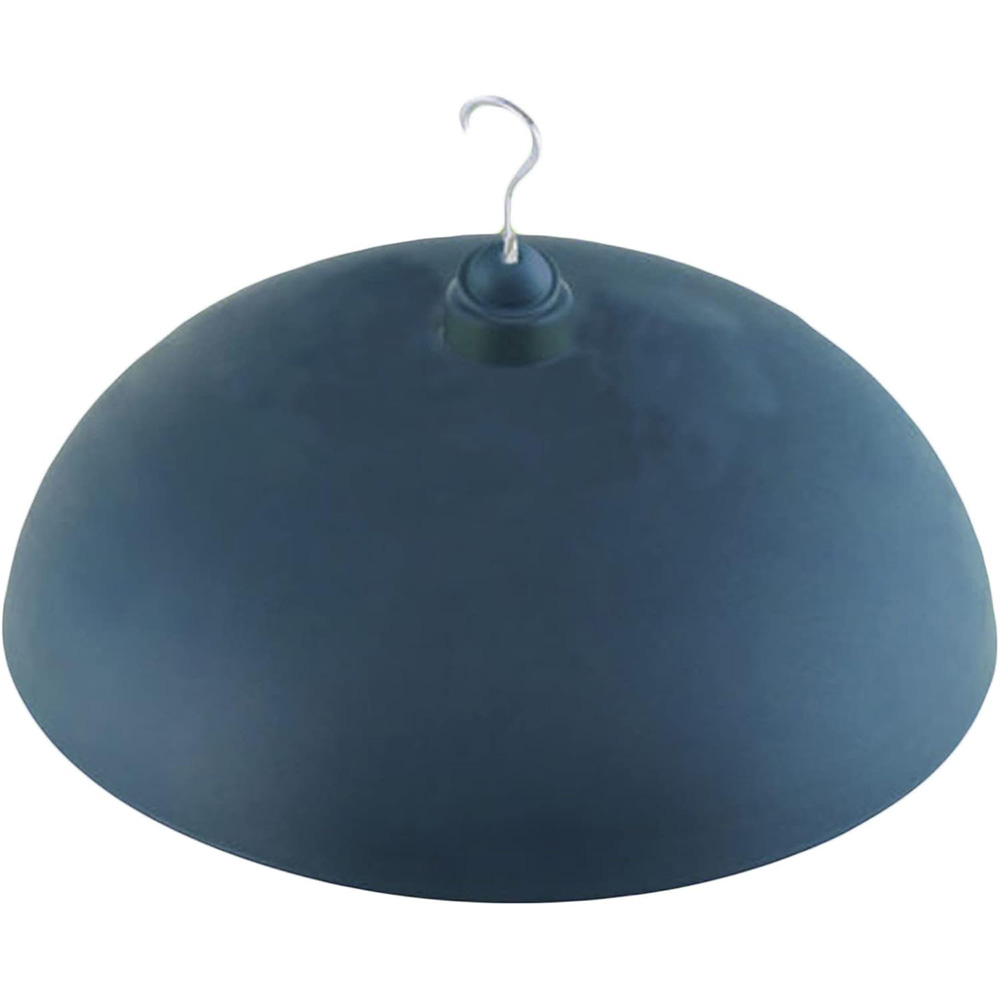
Best baffle
A baffle is a protective dome that can prevent squirrels from reaching the food placed in a regular feeder. Buying one means you won’t need to throw away your existing feeder if it’s being “attacked” by squirrels, saving money while proving to be effective.
For it to work, you need to mount your feeder on a pole then install the baffle around the pole, more than halfway up. The domed shape and slippery nature then makes it impossible for the curious critter to climb any higher, protecting your nuts. Alternatively, you could hang your feeders from a chain or rope, with the baffle positioned to stop squirrels climbing down.
It isn’t entirely foolproof. Squirrels can jump, after all, so you'd really need to place the baffle on top of a pole with a large clear area around. But get this tough, chew-resistant baffle which comes with the mounting hardware and position it correctly, and you’ll soon get on top of that squirrel problem.
Reasons to buy: This cheap and effective baffle will protect many feeders on the market.
Reasons to avoid: You will still need some skill to mount it and it requires careful siting.
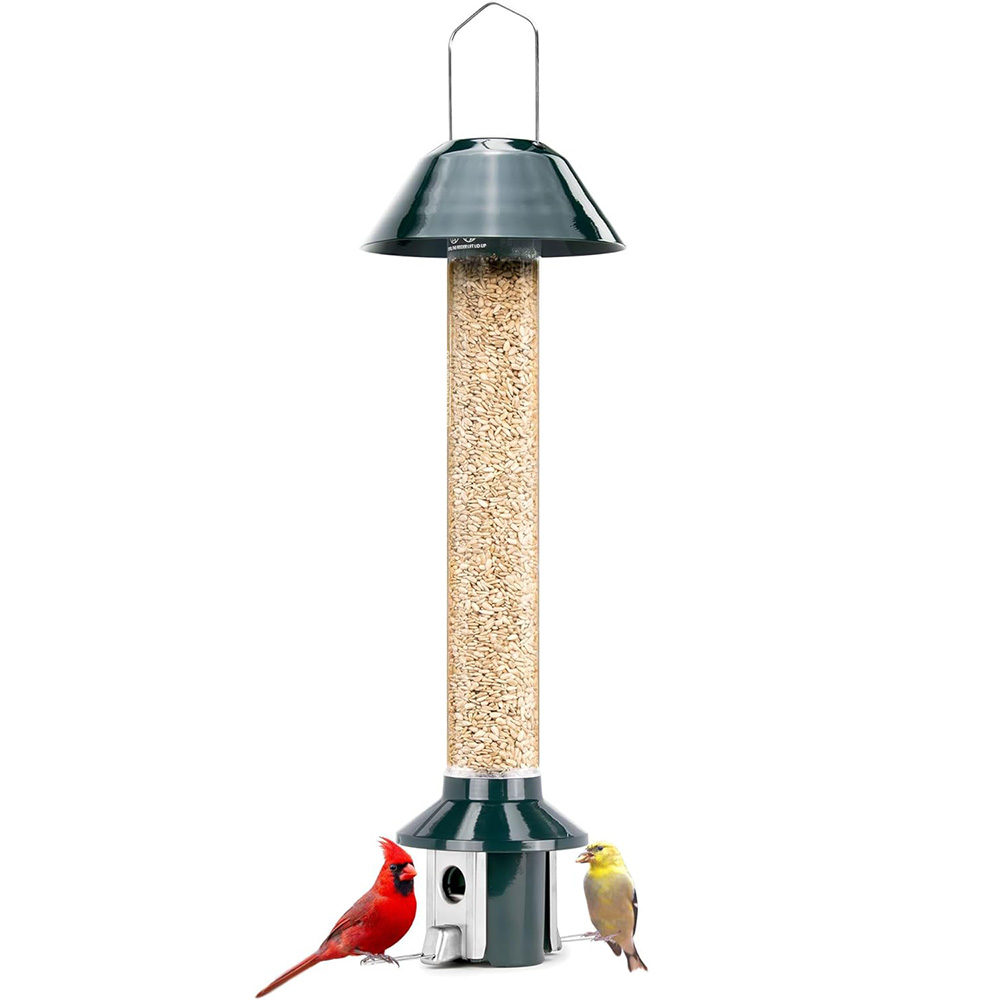
Best spring-loaded feeder
Working in a very similar way to the Squirrel Buster Plus, this spring-loaded feeder will close the available feeding holes whenever a squirrel puts its weight on the device. With no way of accessing the food, the squirrel will have no option but to go elsewhere for its next meal. That leaves the way open for songbirds to get their fill but therein lies a little problem.
The spring is sensitive and it will activate even if a baby squirrel were to climb up. It’ll also close the doors on doves, pigeons and crows – indeed, any bird that isn’t small. So if you want to attract grackles or woodpeckers, look elsewhere. For finches or cardinals, though, this feeder is worth getting on your list.
So long as it’s sited well to prevent squirrels hanging on the feeders and shaking them, you’ll get a lot of wear from the product. The construction of this particular Roamwild model ensures the feeder is waterproof. It also holds 3lb of seed; you won’t be refilling it too often. A built-in baffle helps dissuade squirrels from climbing down to the food too.
Reasons to buy: Made from metal, this excellent feeder is waterproof and has a good capacity
Reasons to avoid: It won’t allow you to attract larger birds and siting is very important
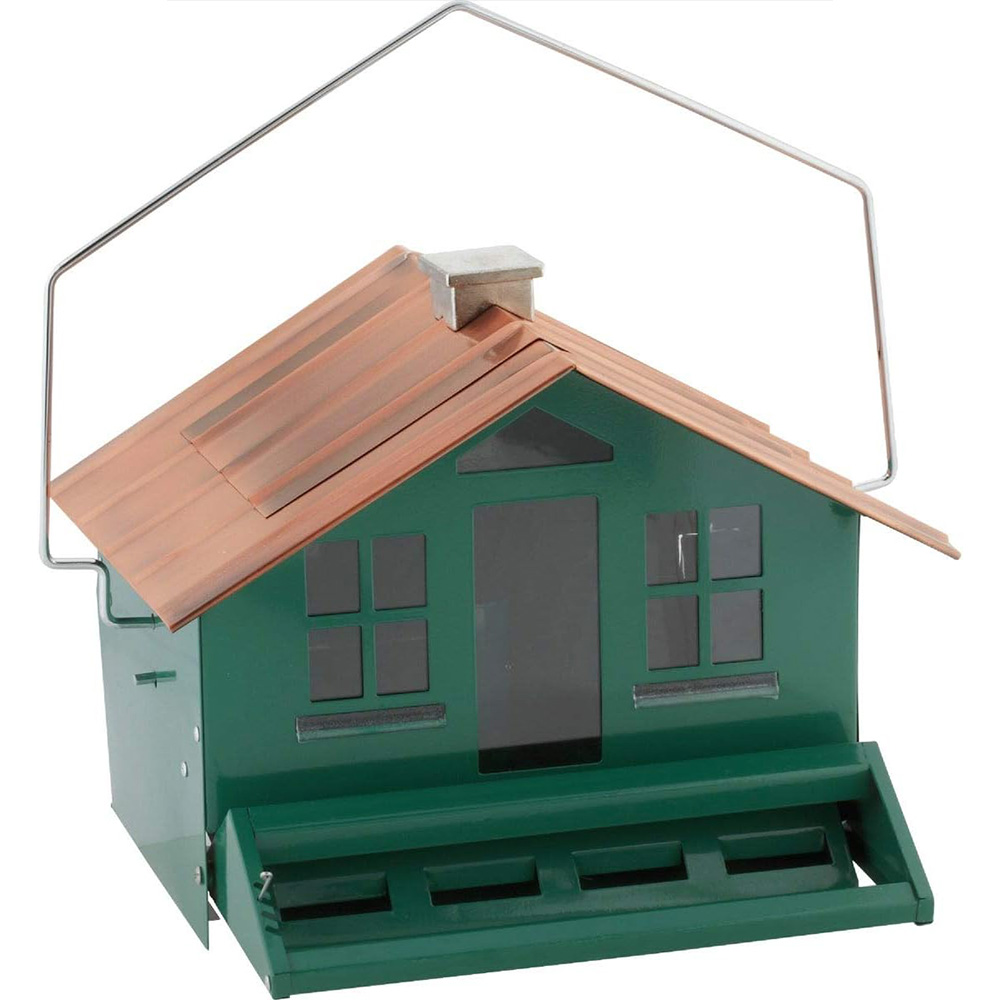
Best stylish squirrel-proof bird feeder
At first glance, this feeder doesn’t look as if it could prevent squirrels from entering its large windows and doors. But looks can be deceiving. If a squirrel grabs hold of the perch, it’ll move downwards under the weight and that will close off the holes, leaving the squirrel wanting.
In that sense, it’s not unlike other spring-loaded feeders but the beauty of this one is that it looks good, holds 8lb of sunflower, mixed or safflower seed and can either be pole-mounted or hung. It’s also very easy to fill since the entire roof comes off, allowing access to the large compartments. This makes it an easy feeder to clean as well.
The fact that it’s made from metal also helps to prevent squirrels from chewing through to the seeds. Locate it well and you should have next to no problems. Be aware that it may not be as waterproof as you’d like though – there have been reports of seeds getting sodden in the rain.
Reasons to buy: It looks fantastic and because it’s made from metal and has a spring-loader, it’ll make squirrels’ lives hard.
Reasons to avoid: You may find that the seeds get wet when it rains so consider some extra weatherproofing.
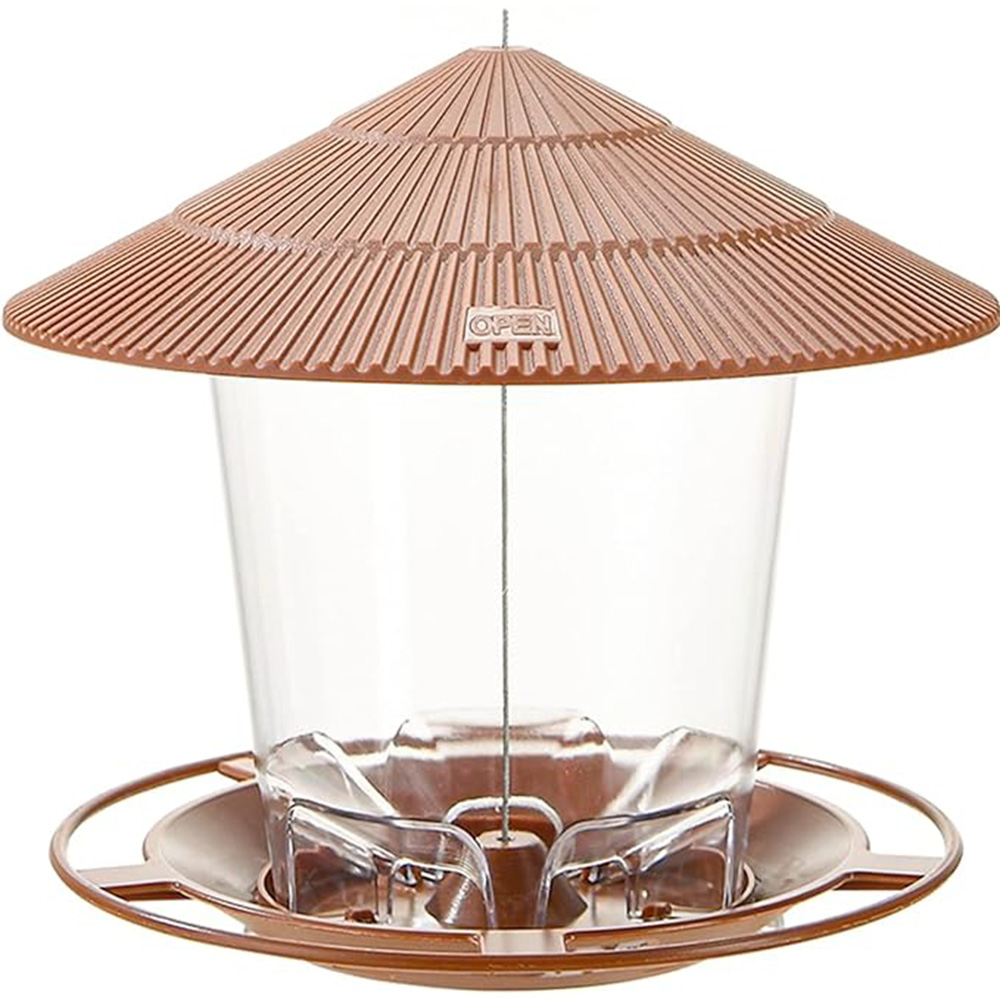
Best budget squirrel-proof feeder
Although we can’t see exactly how this feeder would prevent squirrels from munching away at the seeds that pop from the feeding holes close to the tray, what it will do is stop them from lifting the lid. The lid is fitted with an opening and closing device that keeps it firmly shut when you want it to be so unless the squirrel works out how to twist the lock, they’re not going to be accessing seeds from up top.
Again, the trick is to site it well so that squirrels can’t leap over to it, potentially causing it to tip to its side and lose some of its load. You’re certainly not going to be worried about squirrels chewing through the plastic and you won’t need to fret about the seeds getting wet either because the roof is large and overhangs sufficiently well. Besides, the tray has leaking holes to help keep food extra dry.
Reasons to buy: It’s an inexpensive feeder with a 47oz capacity that will go a long way towards keeping squirrels out.
Reasons to avoid: We can think of a few ways squirrels could gain access but good siting would help.
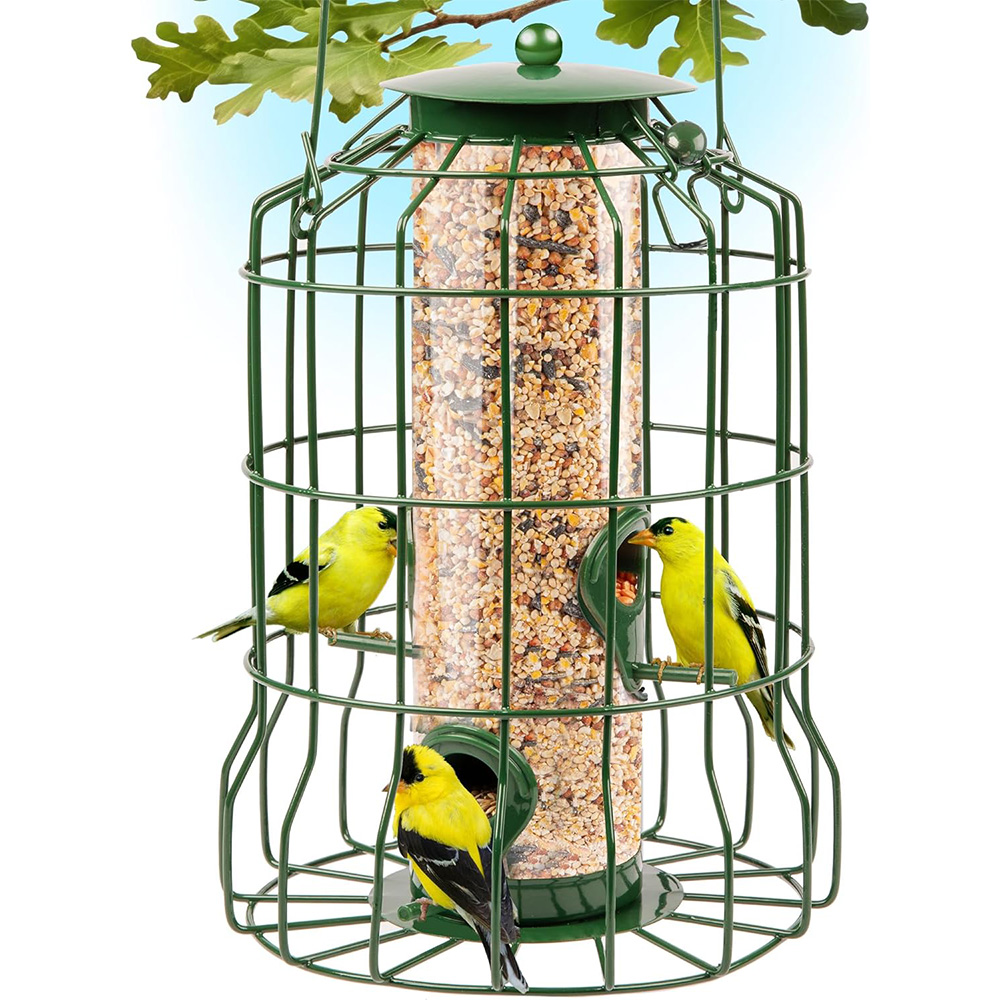
Best squirrel-proof feeder for small birds
Although feeders can be clever with their spring-loading devices, having one that is safely tucked away inside a cage will also do a great job. And that’s what you get here: a feeder which has four feeding holes a decent-distance inside a cage that has bars wide enough for birds to get in and out of (we had initially worried that the birds could get stuck).
If a squirrel decides to grab hold of the cage, he’s going to struggle to get much further. A latch system should prevent the cage from busting open and, other than some incidental spilling, the squirrel is unlikely to get away with much. Of course, it’s not foolproof and the manufacturer itself shies away from saying it’ll be 100% effective. But the metal cage will mean squirrels can’t chew through and we like that it’s also easy to refill and clean.
Reasons to buy: Caging the feeder makes life a bit harder for squirrels without barring access to birds.
Reasons to avoid: The gaps between the bars means medium and large birds are not going to fit so it’s for small birds only.
How we chose the best squirrel-proof bird feeders
In essence, we recognised that a squirrel-proof bird feeder needs to be as sturdy as possible. Squirrels are rodents and their chisel-like teeth, which grow constantly, could so easily chew through soft plastic parts so we favoured metal, caged feeders. We also looked to see if they had spring-activated covers that slid over seed-access points whenever sufficient weight is applied to the perch.
What do vets recommend?
Squirrels are well-adapted to the human world. No other creatures, apart from perhaps racoons and brown bears, are better at exploiting our yards to their advantage and, as we’ve seen, they love to raid the food we put out to attract garden birds.
As such, vets recommend looking out for anti-squirrel features flagged up on the packaging and at the materials the feeders are made from. “If your chosen feeder doesn’t have any clever designs, then you can add your own squirrel ‘baffle’,” says Dr MacMillan. “These are typically positioned underneath the feeder or hanging above it and prevent the squirrel from being able to climb onto it. Alternatively, you could add squirrel-proof caging around your feeder. The right-sized gaps will allow birds through but not squirrels.”
Where should I place a squirrel-proof bird feeder?
Feeders need to be placed well so that squirrels can't jump or climb to raid them. Generally, squirrels can jump five feet high and seven feet across a gap. They will also drop up to nine feet from a higher perch.
“Having your bird feeding station situated away from fences, trees or walls will greatly reduce the chances of a squirrel being able to steal your bird food,” says Dr MacMillan.
Here are some more tips on how to hang a bird feeder.
Should I avoid certain foods that may be attractive to squirrels?
Squirrels don’t like everything enjoyed by birds. “You could stick to bird feed that squirrels don’t tend to enjoy as much, including safflower seeds, nyjer seeds, and white proso millets,” Dr MacMillan advises.
It’s also worth considering how large your feeders are. Putting out large amounts can lead to wastage as it gets wet and becomes moldy, especially if the local birds are slow eaters. Try to keep your seed dry indoors or under cover rather than sitting uneaten in a wet feeder. Only if you have a lot of birds, does a larger feeder may make sense, as you’d be trudging to replenish a small one several times a day.
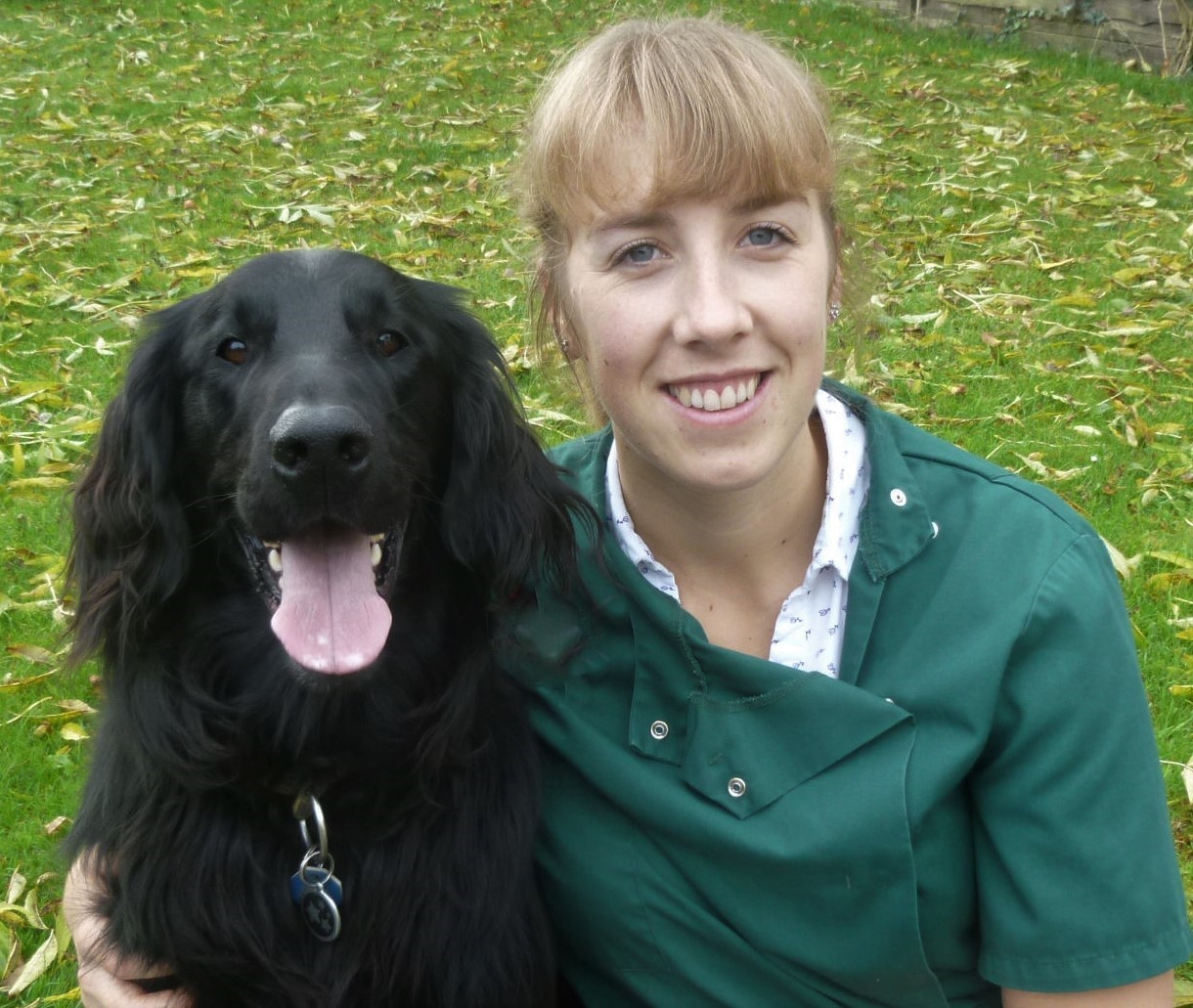
Dr Rebecca MacMillan is a companion animal vet who has always had a passion for writing and client communication. She works in the South West and loves complex medical cases.
Get the best advice, tips and top tech for your beloved Pets

David Crookes has been a journalist for almost 30 years and he has written for a host of magazines, newspapers, websites and books including the World of Animals Annual, BBC Earth, Live Science, The Independent and Tom’s Guide.
Born in England, he lives with two cats but he’s also keenly interested in the differences between the huge number of dog breeds – in fact, you can read many of his breed guides that he’s written in collaboration with vets here on PetsRadar.
With a lifelong passion for technology, too, he’s always on the lookout for useful devices that will allow people to keep their pets happier and healthier, and provide them more time to spend together.
David has a degree from Durham University, as well as postgraduate diploma in journalism from the University of Central Lancashire.
